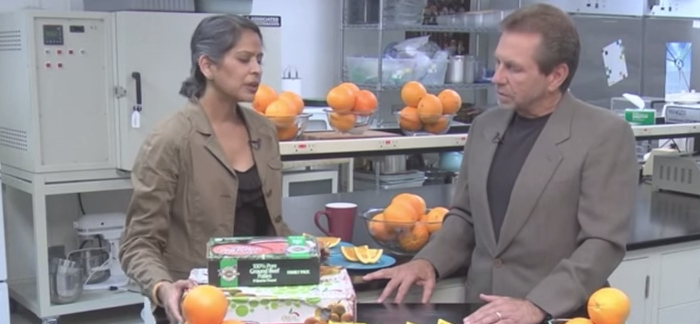Food irradiation is a subject that has created a lot of debate over the years. Anything with the term “radiation” in it is seen as potentially harmful, even though people are exposed to radiation every day. The goal of food irradiation is to create a safe food supply so that people are able to have confidence in the foods they’ve eaten. There may be some additional advantages beyond safety and some disadvantages to consider as well, so here is a look at the pros and cons of food irradiation in greater detail.
Here Are the Pros of Food Irradiation
1. It can help people with immune deficiencies to be able to have safe foods to eat.
People who are suffering from diseases that require them to have their immune systems depressed, either by medication or the disease itself, can become sick from basic food contaminants. Food irradiation removes these contaminants so they have a safer food supply.
2. It kills many of the dangerous organisms that can be in food.
Even with the best food handling procedures in place, it is possible for dangerous organisms to be found in food products because of issues at the source. Food irradiation can help to remove at least 90% of these organisms before they ever hit the market for sale.
3. It proactively prevents insects from affecting grain supplies.
Moths and other insects are attracted to grains, even when they’re stored in the home. Food irradiation makes these food products less attractive to insects that would leave their larvae in the food supply, reducing infestations and potential health hazards.
Here Are the Cons of Food Irradiation
1. There is no guarantee that it can kill everything in the food.
Some organisms that can be found in food are known to be resistant to radiation. Others are naturally designed to be difficult to kill and the light levels of radiation put into the foods does nothing to affect their overall life span.
2. Animals have reacted negatively to irradiated foods.
Research that dates back over 60 years has shown that animals who have consumed irradiated foods on a regular basis have suffered from numerous health consequences. Rare cancers, abnormalities in their chromosomes, and even premature death have been shown to occur.
3. It changes the textures and the flavors of the food.
Not only is there the possibility of the vitamins and minerals in the food being destroyed or altered, but the textures and flavors of food are often altered after being irradiated. Many of these changes are unpleasant, like irradiated beef smelling like a dirty wet dog.
Food irradiation has shown to be beneficial in the fact that it increases the shelf life of food, but it also means that there are potential health consequences that could come with regular consumption. By evaluating all of the advantages against the disadvantages of food irradiation, we can decide which foods make sense to irradiate, when they should be irradiated, or if the practice should be stopped altogether.




